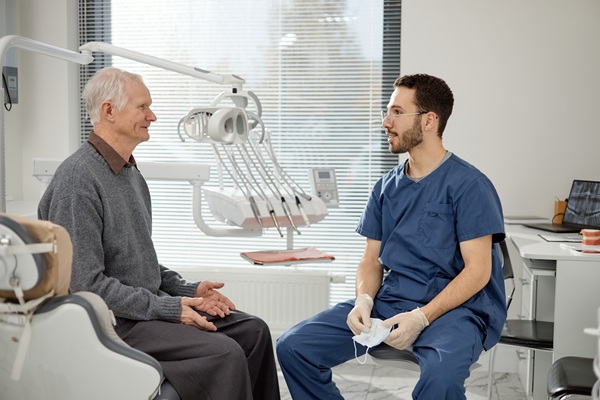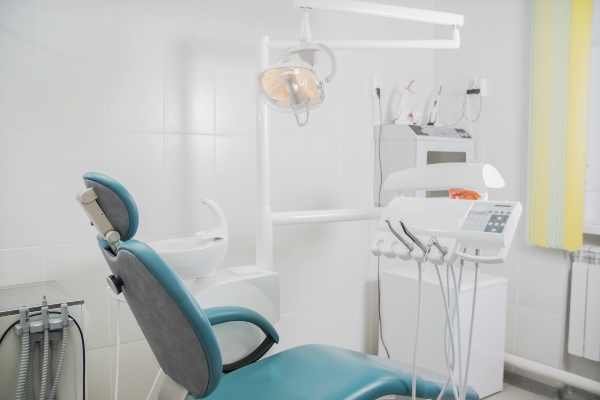 Scheduling regular visits to a family dentist is an important part of maintaining good oral health. During routine checkups, patients can expect a visual examination along with occasional X-rays. In addition, the dental team will conduct a series of oral hygiene procedures to keep the teeth and gums strong and prevent decay and disease. While brushing and flossing at home are necessary for dental health, there is no substitute for a professional cleaning.
Scheduling regular visits to a family dentist is an important part of maintaining good oral health. During routine checkups, patients can expect a visual examination along with occasional X-rays. In addition, the dental team will conduct a series of oral hygiene procedures to keep the teeth and gums strong and prevent decay and disease. While brushing and flossing at home are necessary for dental health, there is no substitute for a professional cleaning.
Common types of oral hygiene services
A family dentist may customize treatments based on a patient's age or current oral health situation. Still, most can expect the following services at a six-month checkup.
Scaling
To begin, a dentist or hygienist uses a variety of instruments, such as a scaler and periodontal curette, to remove layers of tartar and plaque built up on the surfaces of the teeth and along the gum line. This process, known as scaling, is one of the most important aspects of a dental cleaning, as it removes harmful bacteria and helps prevent gum disease. Some offices may use an ultrasonic instrument for scaling instead of traditional manual tools.
Tooth cleaning and polishing
Once scaling is complete, a flossing may sweep out any remaining debris before the teeth are cleaned and polished. In some younger patients, only a toothbrush is used. For most other patients, the dental professional uses a polishing brush with a high-grit toothpaste to finish the cleaning.
Fluoride treatments
Research has shown that fluoride plays a major role in preventing tooth decay. People are encouraged to brush with a fluoride toothpaste on a daily basis. Most public drinking water is also treated with fluoride to help improve oral health. However, a family dentist may recommend a fluoride treatment once a year or more as an extra layer of protection. This is especially true for younger patients or those with a history of dental caries.
Periodontal cleaning
When a patient skips regular cleanings or is showing signs of gum disease, a more thorough periodontal cleaning may be administered. This usually involves root planing, a process similar to scaling, which helps remove plaque deposits below the gum line along the root. In some offices, a family dentist may use laser therapy treatments to stimulate gum tissues and remove bacterial buildup.
The importance of a professional cleaning
A regular dental cleaning helps protect the mouth against a host of complications, including:
- Cavities
- Gum disease
- Severe tooth decay
- Infection
- Tooth loss
Delaying an appointment by even just a few months can significantly increase the risk of developing dental problems. Scheduling regular professional hygiene treatments and maintaining good home care helps lower the risk of developing other serious conditions, including diabetes and heart disease. Patients can also enjoy a whiter, more beautiful smile and fresher breath.
Conclusion
Seeing a family dentist on a routine basis is vital to good oral health. At each visit, patients can expect numerous hygiene procedures to clean and protect the teeth and gums. When coupled with healthy home care habits, these techniques can help patients enjoy a healthier and more appealing smile for years to come.
Request an appointment or call Davis & Dingle Family Dentistry at 803-567-1804 for an appointment in our Columbia office.
Recent Posts
A unique benefit of choosing a family dentist is that this professional care for the oral health of your entire household during every stage of life. The dental needs of children, teenagers, and adults vary, so a family dentist who can offer a comprehensive range of services for every family member is a valuable asset.Family…
For many people, a family dentist is the right choice for routine dental care. While this type of practice is usually equipped to handle the specific needs of pediatric patients, it is still able to provide thorough care for adults as well. Family dentists typically offer a wide variety of services in one location and…
According to the American Dental Association, little more than half of Americans visit a family dentist twice yearly, which is the frequency with which the ADA recommends checkups. This means that an overwhelming percentage — more than 40% — only schedule a visit when something is wrong. Individuals who fall into the latter category may…


